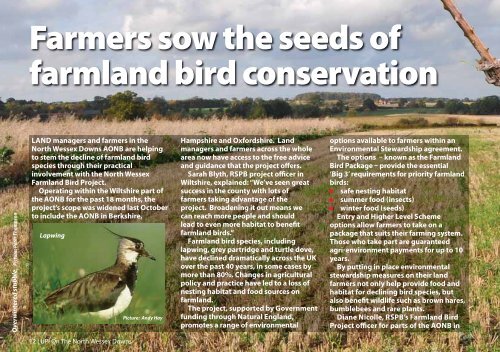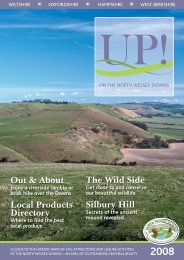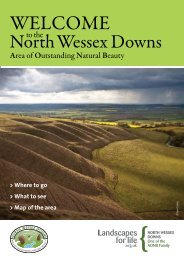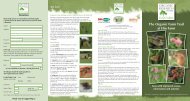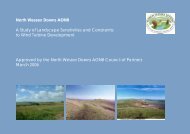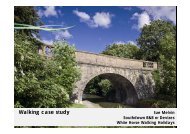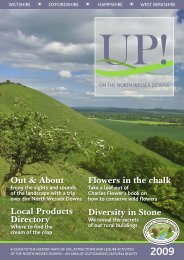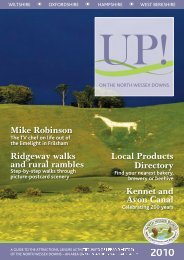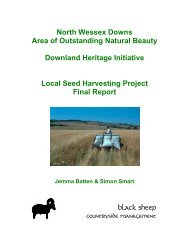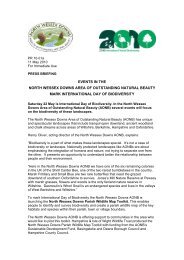UP! - North Wessex Downs Area of Outstanding Natural Beauty
UP! - North Wessex Downs Area of Outstanding Natural Beauty
UP! - North Wessex Downs Area of Outstanding Natural Beauty
You also want an ePaper? Increase the reach of your titles
YUMPU automatically turns print PDFs into web optimized ePapers that Google loves.
Farmers sow the seeds <strong>of</strong><br />
farmland bird conservation<br />
Overwintered stubble. Picture: Peter Thompson<br />
LAND managers and farmers in the<br />
<strong>North</strong> <strong>Wessex</strong> <strong>Downs</strong> AONB are helping<br />
to stem the decline <strong>of</strong> farmland bird<br />
species through their practical<br />
involvement with the <strong>North</strong> <strong>Wessex</strong><br />
Farmland Bird Project.<br />
Operating within the Wiltshire part <strong>of</strong><br />
the AONB for the past 18 months, the<br />
project’s scope was widened last October<br />
to include the AONB in Berkshire,<br />
Lapwing<br />
Picture: Andy Hay<br />
Hampshire and Oxfordshire. Land<br />
managers and farmers across the whole<br />
area now have access to the free advice<br />
and guidance that the project <strong>of</strong>fers.<br />
Sarah Blyth, RSPB project <strong>of</strong>ficer in<br />
Wiltshire, explained: “We’ve seen great<br />
success in the county with lots <strong>of</strong><br />
farmers taking advantage <strong>of</strong> the<br />
project. Broadening it out means we<br />
can reach more people and should<br />
lead to even more habitat to benefit<br />
farmland birds.”<br />
Farmland bird species, including<br />
lapwing, grey partridge and turtle dove,<br />
have declined dramatically across the UK<br />
over the past 40 years, in some cases by<br />
more than 80%. Changes in agricultural<br />
policy and practice have led to a loss <strong>of</strong><br />
nesting habitat and food sources on<br />
farmland.<br />
The project, supported by Government<br />
funding through <strong>Natural</strong> England,<br />
promotes a range <strong>of</strong> environmental<br />
options available to farmers within an<br />
Environmental Stewardship agreement.<br />
The options – known as the Farmland<br />
Bird Package – provide the essential<br />
‘Big 3’ requirements for priority farmland<br />
birds:<br />
• safe nesting habitat<br />
• summer food (insects)<br />
• winter food (seeds)<br />
Entry and Higher Level Scheme<br />
options allow farmers to take on a<br />
package that suits their farming system.<br />
Those who take part are guaranteed<br />
agri-environment payments for up to 10<br />
years.<br />
By putting in place environmental<br />
stewardship measures on their land<br />
farmers not only help provide food and<br />
habitat for declining bird species, but<br />
also benefit wildlife such as brown hares,<br />
bumblebees and rare plants.<br />
Diane Nicolle, RSPB’s Farmland Bird<br />
Project <strong>of</strong>ficer for parts <strong>of</strong> the AONB in<br />
12 | <strong>UP</strong>! On The <strong>North</strong> <strong>Wessex</strong> <strong>Downs</strong>


